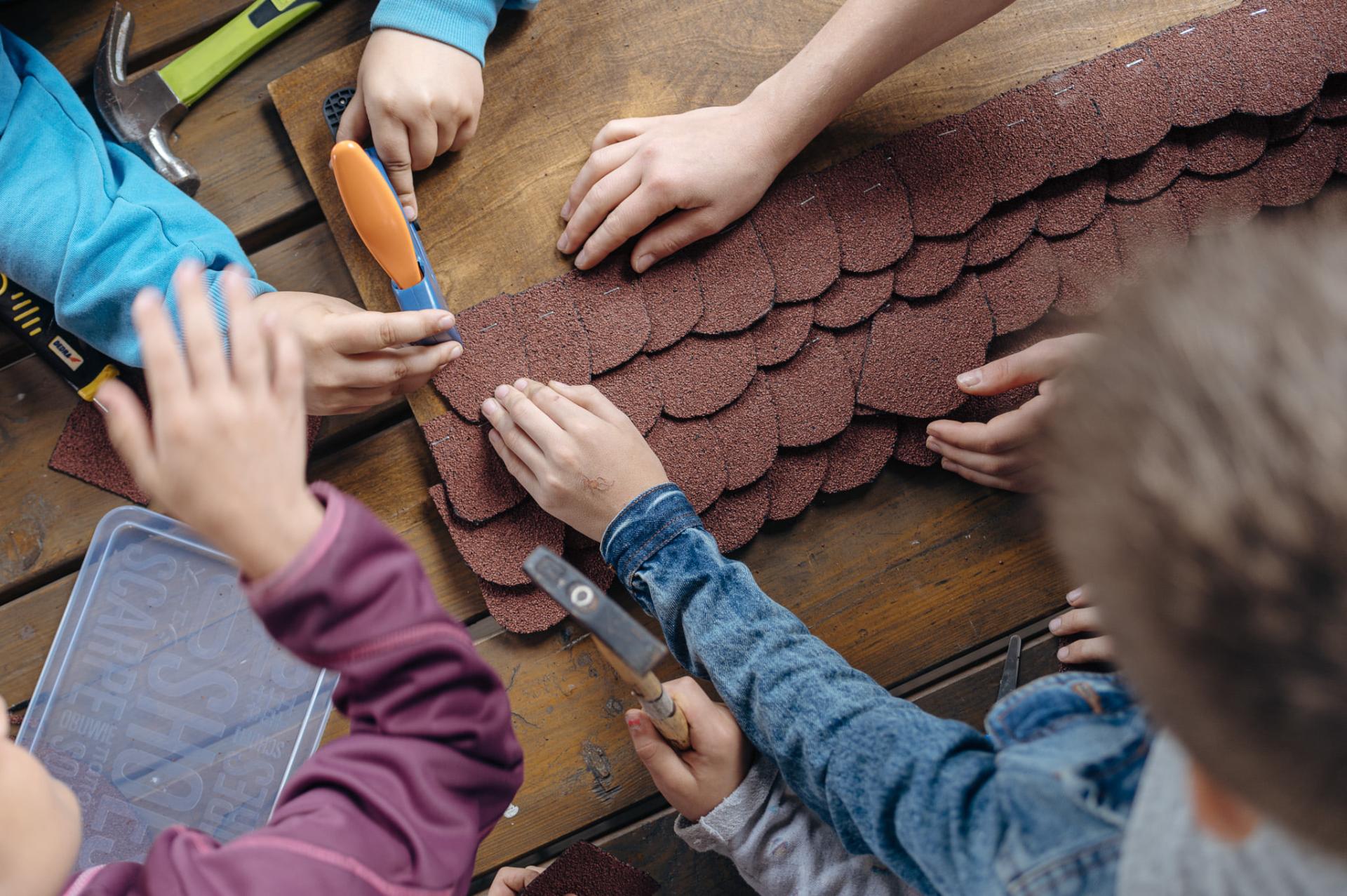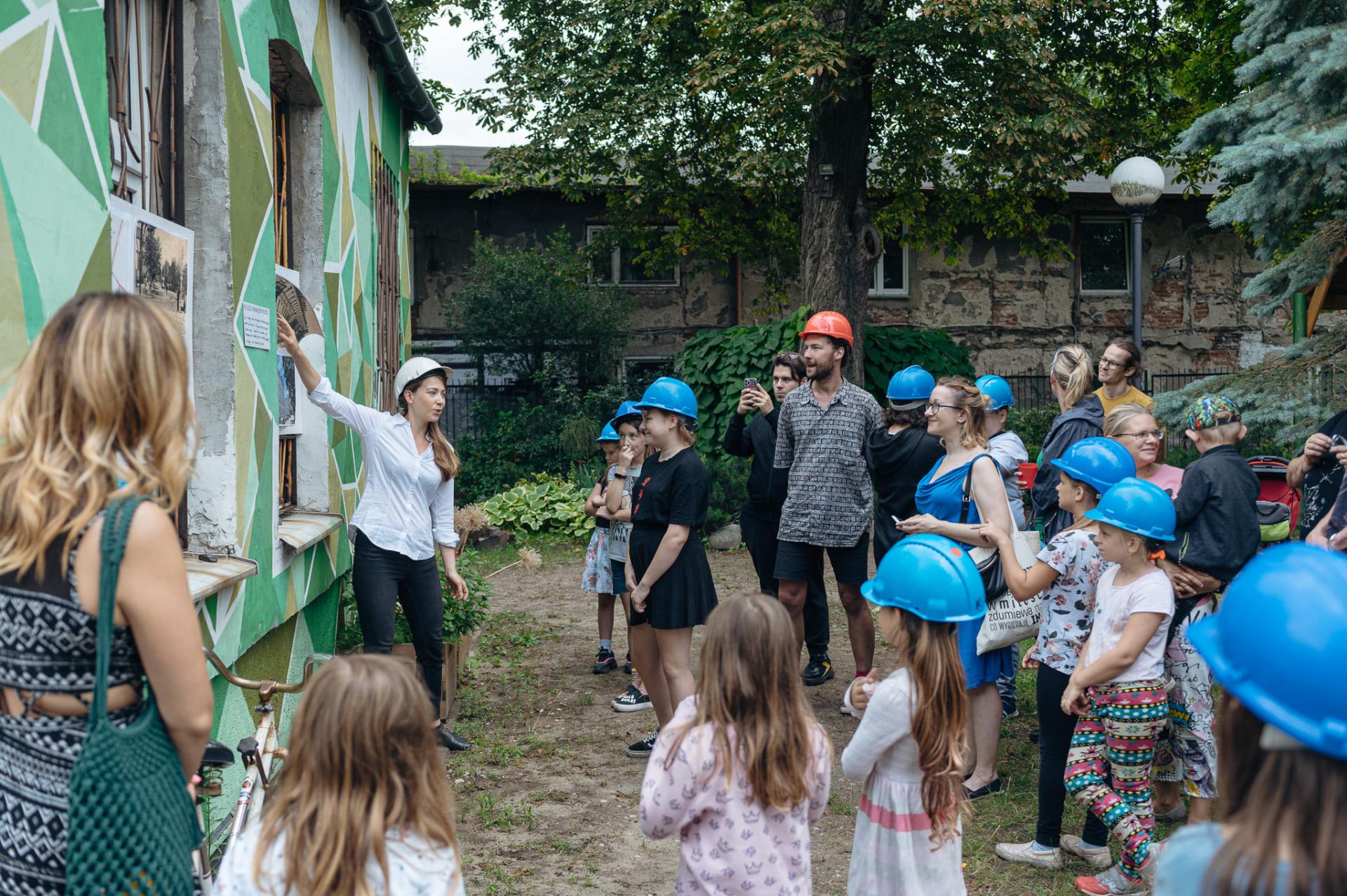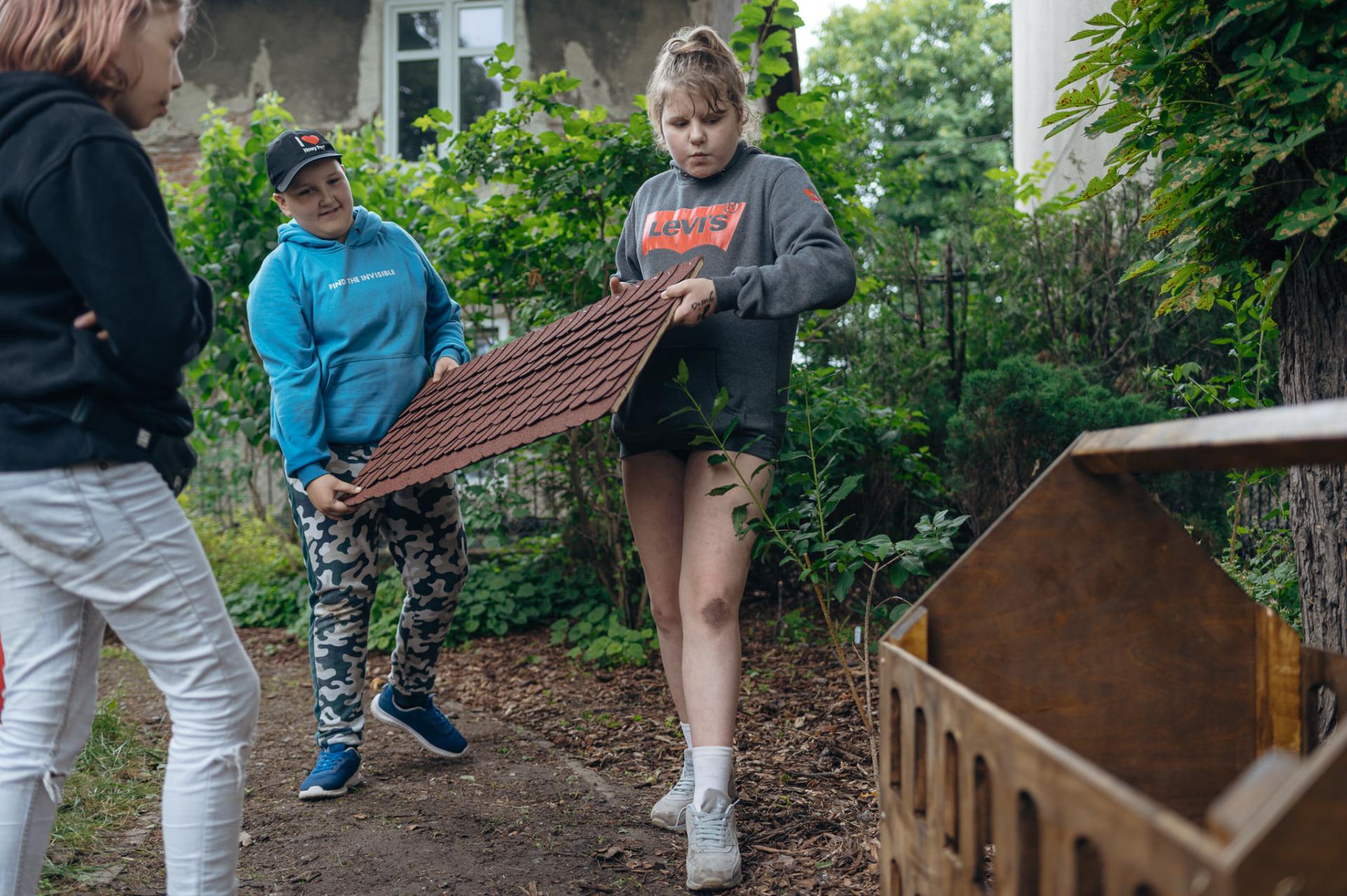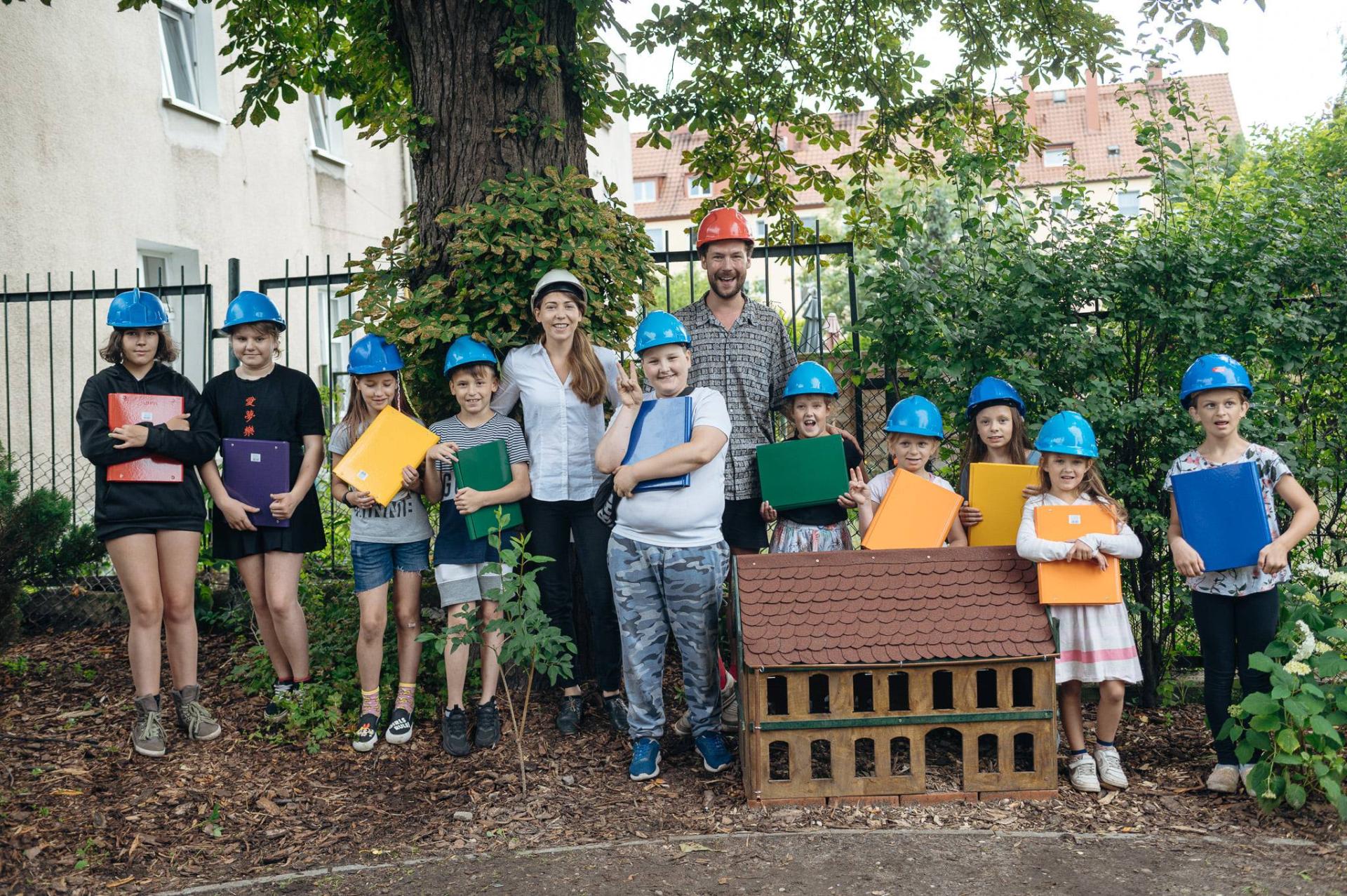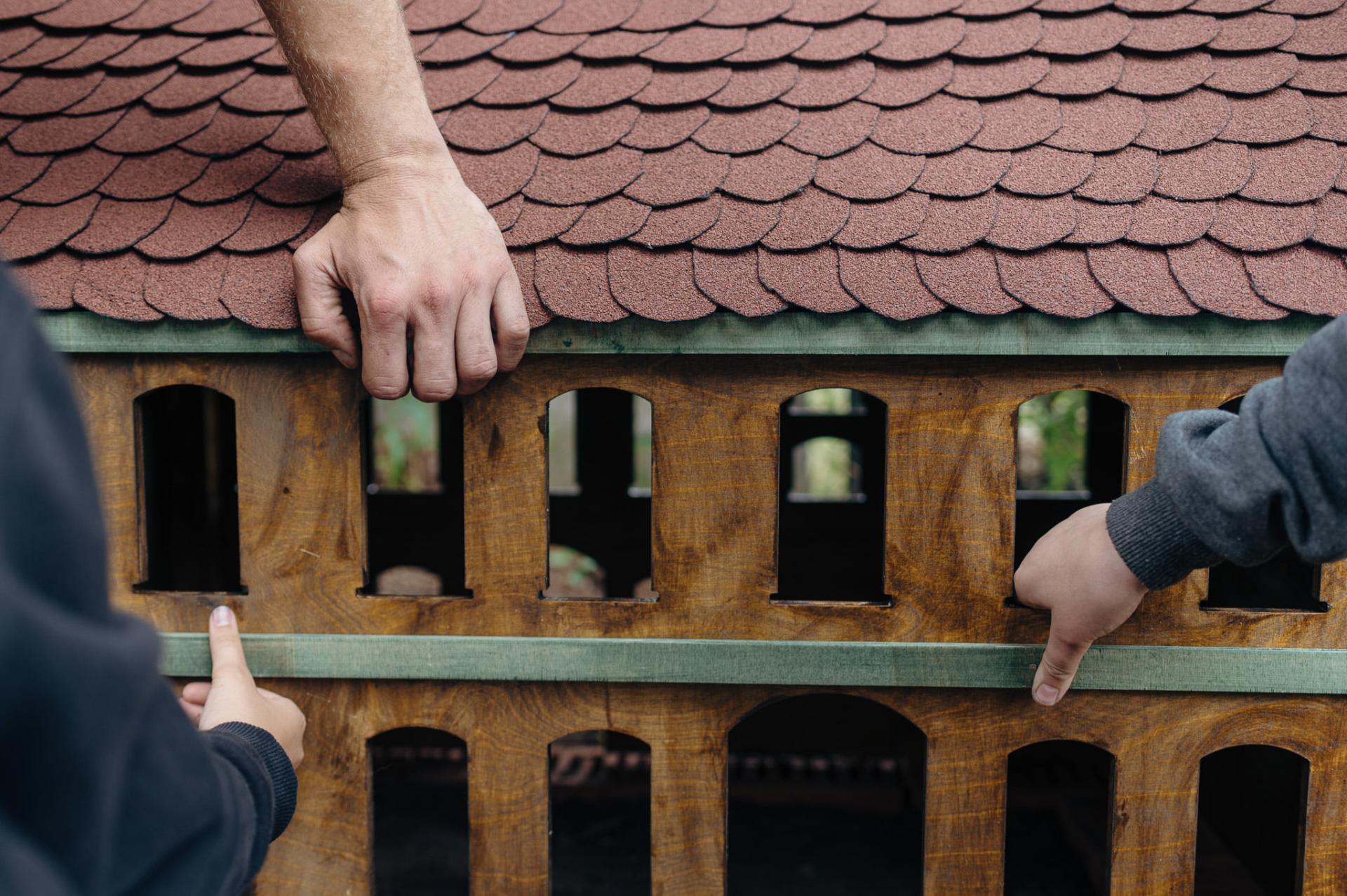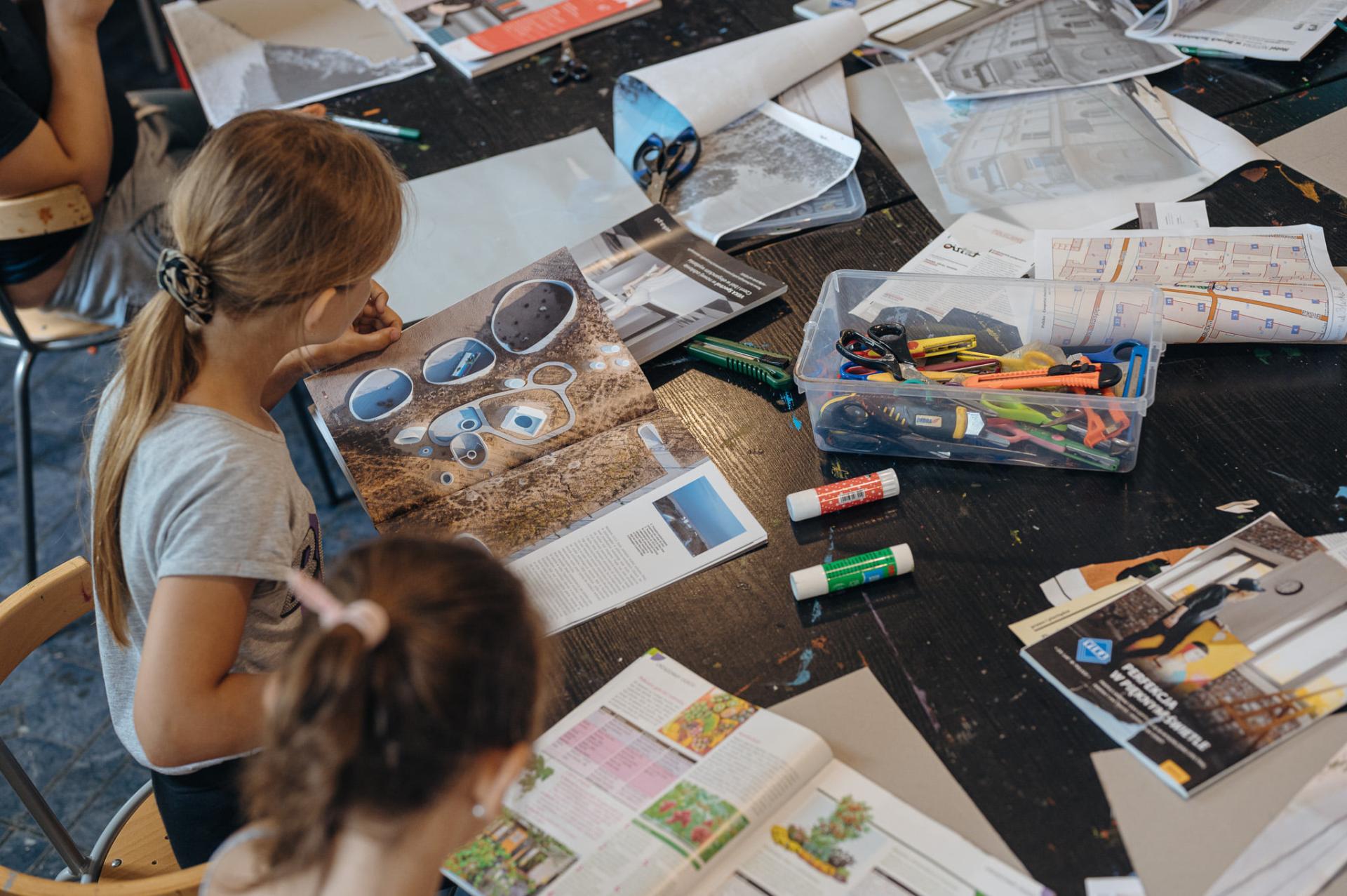The scale of imagination
Basic information
Project Title
Full project title
Category
Project Description
The Scale of Imagination was a project of artistic and creative workshops targeted to a diverse group of local children from Nowy Port district in Gdansk, Poland. Through city funding the program was made accessible and free of charge. Weather permitting, the workshops were implemented outside prioritising the important places in participants' daily environment and enabling reconnection with the nature.
Geographical Scope
Project Region
Urban or rural issues
Physical or other transformations
EU Programme or fund
Which funds
Description of the project
Summary
During the summer 2021 the project organised two-weeks workshops for local children from children's organisation Dom na Skraju in the Nowy Port district in Gdansk, Poland. The initial plan of the project was to connect local artists and architects with educators. The objectives of the project were to help locals regain a sense of belonging, reconnect with nature and prioritise the places and people closest to them. The first week consisted of lessons and exercises about architecture and the scale of buildings. The practical project of the first week was to measure the historical main building of the organisation Dom na Skraju and to build a wooden model of it in the scale of 1:10. The function of the model is to host hedgehogs, which are regular guests of the backyard garden. The topic of the second week was bigger urban scale, aesthetics and accessibility of public spaces, as well as nature and rainwater in the city. After the lessons the kids were encouraged to find important places nearby, photograph the nowadays view to match with old photographs from the beginning of the 20th century. Finally they were given the task to imagine and plan the future of these places. Additionally the participants needed to consider the aesthetics and accessibility of these spaces and urban nature surrounding them.
Key objectives for sustainability
The project was implemented in the historical district of Nowy Port, which has a problem of underdeveloped public spaces and infrastructure. There is regular flooding because of lacking rainwater infrastructure. The key objectives were to educate the participating children about sustainable urban planning and infrastructure. They gained knowledge of various subjects including green spaces and rainwater management in the city. In addition to knowledge provided the participants, the small citizens of the district and regular visitors of the Dom na Skraju garden, hedgehogs, got a new place to stay.
Key objectives for aesthetics and quality
The one of the main objectives of the project was to educate the participants about consistent urban planning and architecture. They had to think about which kind of structures would aesthetically fit between existing buildings in the district.
Key objectives for inclusion
The project was funded by a city grant so it was free of charge. The participants were mostly coming from families with lower than average income, which means that they would not be able to participate in such workshops if there were any admission fees. Additionally the project was implemented locally close to their homes, so the children did not need to use any means of transport to come and join the workshops.
Results in relation to category
The visible results of the workshops can be still seen in the Dom Na Skraju garden, where the model house still stands. The underlying and possibly more valuable impact is the knowledge and insights the children got and they can utilise in their lives. During the whole process the participants were writing their thoughts and the thing they had learnt in notebooks provided. This way we could also monitor their progress and the things they were learning during the program.
How Citizens benefit
The group of children from the district were the main participants. There was a project closing event, which was open for everyone and especially targeted at the parents of the children. The children were proudly presenting their work and taking the visitors on a tour around the garden. Besides the participants benefiting from the education, also the families got some insights from our project and the feedback was completely positive.
Physical or other transformations
Innovative character
The main goal was to create a program of activities that would be, on the other hand, tailored to the specific location, but could be implemented in any public environment which has a historical background. The innovation of the project lies in the flexibility of the scenario and its openness to change.
Learning transferred to other parties
The Scale of Imagination is an open source program and can be implemented in the location of your choice. As an elaborated method it could be used as a tool for working in different places and allow improving the quality of urban spaces in cities. We would like the program to be openly licensed and eventually a common platform could allow for the improvement of the initial idea based on the foundations of the project.
The program is based on literature and examples from around the world, such as The Davos Declaration and the Davos Process, Arch-adventures (a Polish educational program), general architectural education.

